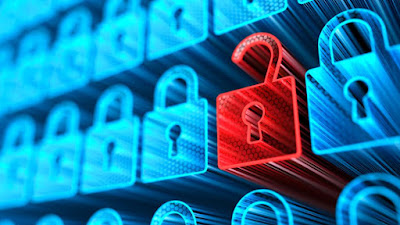IS USING INTERNET SAFE?


Technology is advancing by leaps and bounds and with it the sophistication of attack systems, which are no longer limited to crude decoys trying to hunt unscrupulous on websites of dubious legality, which is why help is needed that sees beyond our eyes.

This statement is usually accompanied by a series of
advice, among which it is asserted with some superiority that nothing happens
if you are a little careful not to browse websites with unreliable content and
do not open the first suspicious file that arrives attached to the email .
A few years ago this statement might have made sense and
was a sufficient formula to stay relatively safe from cyberattacks, but the
threats have become so sophisticated that they are almost undetectable, so
common sense is not enough. In addition, you will also need the help of antivirus software that
will protect your device and data without harming your work.
From destructive virus to stealth theft
To understand that common sense as an antivirus tool is no
longer a decisive value in the prevention of attacks, we must look back to see
how the nature of computer attacks and the objectives that move cybercriminals
have changed to realize that it is not a game and cybercrime already moves more
money than drug trafficking .
44% of the victims are never aware that they have been
attacked until their data has been used in some type of fraud.
The collective imagination still associates viruses with
those files that were downloaded from the browser or copied to the computer
from an external drive and announced with great fanfare that your computer had
been attacked, creating some annoyances and even damaging some components or files
in the most cases.
The spirit of cybercriminals in those years was oriented
more to achieve a certain reputation with their feat than to obtain a real
economic benefit.
However, the objective of today's attacks is just the
opposite. Today's cyberattacks seek to get hold of the largest amount of user
data, so the longer it remains invisible to the user, the more options to get
hold of their bank details, email passwords, credentials in online stores, etc.
This makes the entire attack process much more
sophisticated and stealthy. So much so that the user can be browsing the portal
of a newspaper, an online store or the page of an absolutely reliable brand,
and suffer an attack from their browser without even downloading anything to
their computer.
The motives behind cybercriminals have also changed. Now it
is limited to a mere economic interest. Even if you think that your data does
not matter to anyone, there are many interested parties willing to pay fortunes
for it, so cybercriminals will do everything possible to obtain as much private
data as possible.
Hiding behind the claim that common sense is enough, maybe
it was true a few years ago, but in an age when even cybercriminals use
artificial intelligence, moving around in a safe environment without the help
of security software is complicated even for the most expert eyes. It is true
that, even with security software installed on your computer, no one is 100%
safe from cybercrime, but not having this help considerably increases the risk
of being an easy target.
Malware,
phishing and ransomware are the main threats
In the same way that cybercriminals' motivations have
changed, so have their attack methods to become more efficient and stealthy.
Viruses and adware that led the first positions in number
of attacks, have now been relieved by all kinds of malware and Trojans that
hide behind reliable applications or websites to attack users in the form of
phishing attacks to get their data or ransomware to hijack your files.
Does that mean that common sense is useless to protect
users? Absolutely. In fact, user caution continues to be a very valuable
element in computer security, but it has become the weakest link in the chain
and it is necessary to have antivirus software.
This software takes care of, for example, reading the code
to detect potentially harmful scripts hidden among the code of a legitimate and
trusted website or application.
This code is not visible to the user and has been injected
by cybercriminals without the knowledge of its owner, so nothing will alert the
user of the risk. The mission of the antivirus software is
to accompany the user during their browsing to detect and block those invisible
threats that will take advantage of the slightest loophole to look into your
computer and start monitoring.
These types of silent attacks often serve as a gateway to
download other types of malware or ransomware onto the attacked computer
without the user being aware of it. Hence the importance of having an
up-to-date security solution installed on the computer, which will neutralize
the threat as soon as it detects the first traces of malware, Trojan or
ransomware.
Comments
Post a Comment